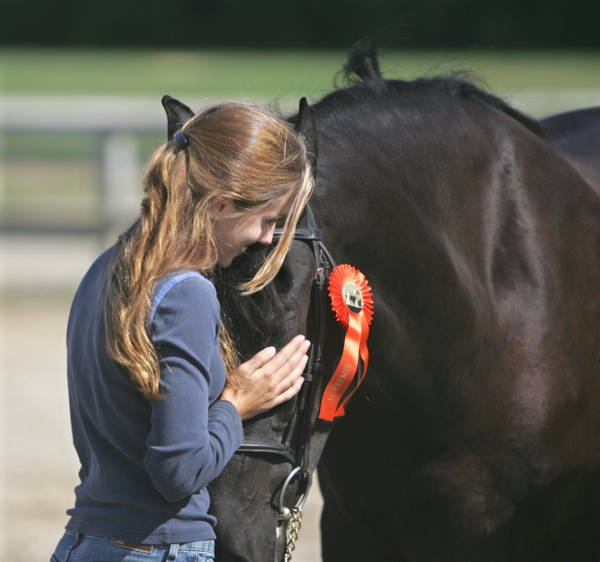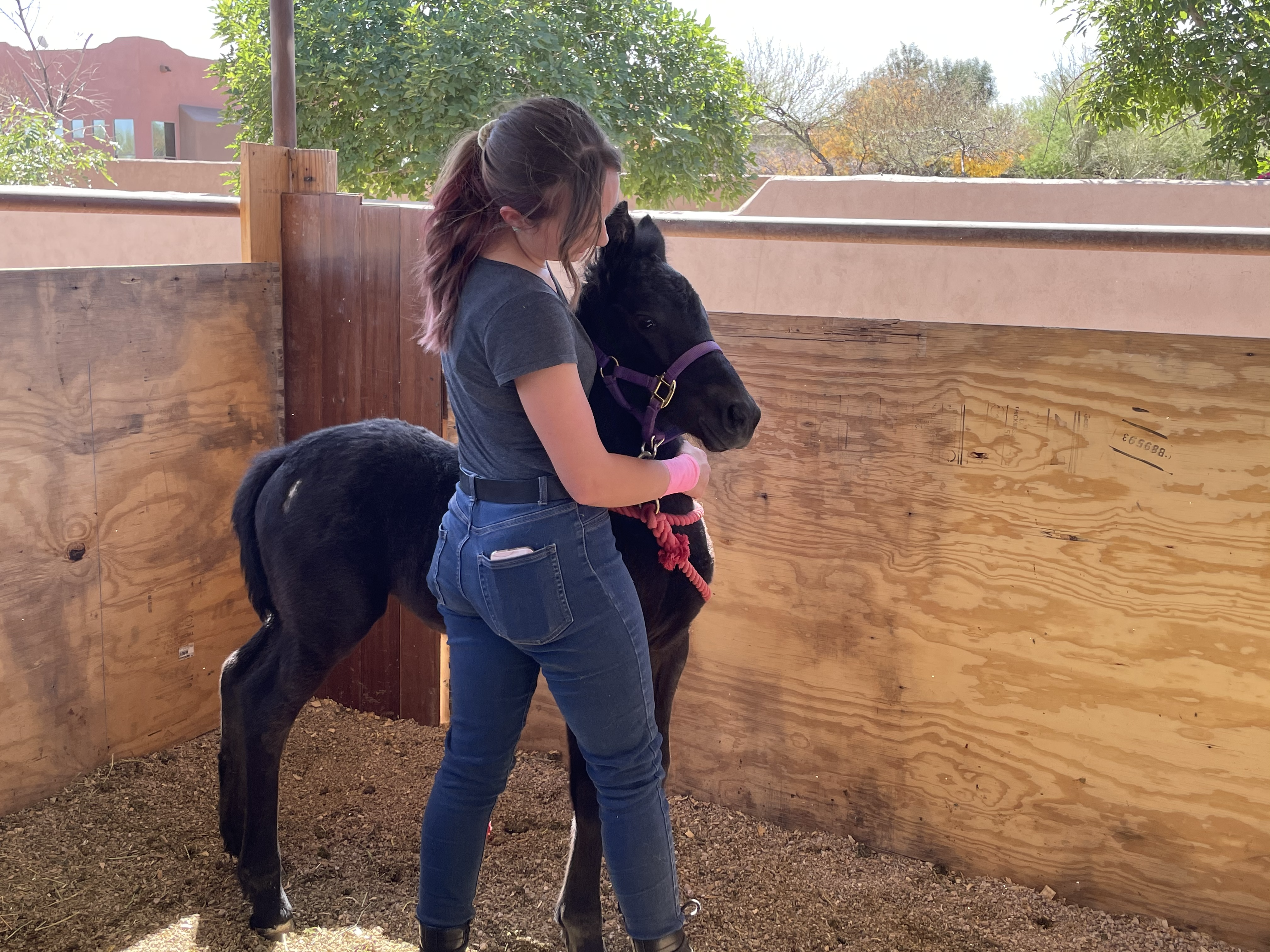If you have been following our foal training journey with Renfri this year, you know we’ve covered some different foal training tips and ways to introduce new things. While these specific techniques can help your foal progress quickly in training, there are a few high-level things you’ll want to keep in mind as you continue your training adventure.
Be Consistent
We’ve mentioned this before, but start working with your foal as soon as possible! There are several reasons for this, but the main one is it is much easier to work with a small foal compared to a 1,000-pound full-grown horse. Your foal will also have less of a chance to develop bad habits like spooking and disrespect.
Stay consistent with your training by scheduling brief sessions with your foal each day. You can’t work with a foal for more than 15 or 20 minutes at a time or you will exceed their capacity. Use this time to work on halter training, desensitizing them to new objects, and moving their bodies around (feet, legs, etc.). The more consistent you are the more normal this process will feel for your foal.
Don’t Chase Your Foal
You do not want your foal to think they can avoid you and run away when they don’t want to work with you. This is a habit you want to avoid entirely by working in small spaces like a stall or small round pen. Running away can quickly become a fun game for your foal and a very frustrating one for you! If you find your foal is starting to develop this habit ask another person to assist you in catching your foal until they understand avoidance isn’t going to work.
Stop Disrespect Immediately
We are talking about pushing and invading your space here. After your foal gets over their initial fear of people, they often try to dominate you by pushing you, biting you, and invading your space. This usually starts off as “so cute” and quickly turns dangerous. Foals do not understand your place in the herd hierarchy and they are likely to push this relationship.
It is important to establish a pecking order where you are the leader. Using different techniques such as moving their feet around can quickly establish you as a leader. Always make sure to praise your foal for any efforts they make to fulfill what you are asking. Gaining your foal’s respect as a leader will make training easier as they grow.
Work with their Curiosity
Foals are naturally curious about the world and everyone in it. As you spend time in the barn, with the mom, and with the foal, you’ll find your foal will be very interested in everything you do. Ignore them while you are cleaning the stall and see what happens! They will investigate the wheelbarrow, sniff the muckrake, and likely follow you around the stall to see what you are up to. Foster this curiosity and use it to desensitize them to new things!
Don’t Overdo it
As I mentioned above, you want to keep your sessions between 15-20 minutes per day. It’s important to remember foals are young and don’t have the same stamina as a full-grown horse. They don’t have the mental or physical capacity for lengthy training sessions. If you are working with foals during hot weather make sure to give them frequent breaks to breathe. As your foal gets older and stronger, you can slowly lengthen the duration of your training sessions. With the consistent sessions, you will get an understanding of what is too much or too little for your foal. Work to find that balance.

I’ve been around horses my entire life, but my Friesian journey started just over 20 years ago. Our horses have always been a part of our family. They have traveled with us as we relocated from Vermont to New York to Iowa and finally, to Arizona. I can’t wait to share our story with you!
Related
Jun 15, 2021
5 Tips to Start Your Foal Training Successfully

Leave a Reply Cancel reply
@starlitridgefriesiansandfells
LET'S BE FRIENDS ON INSTAGRAM